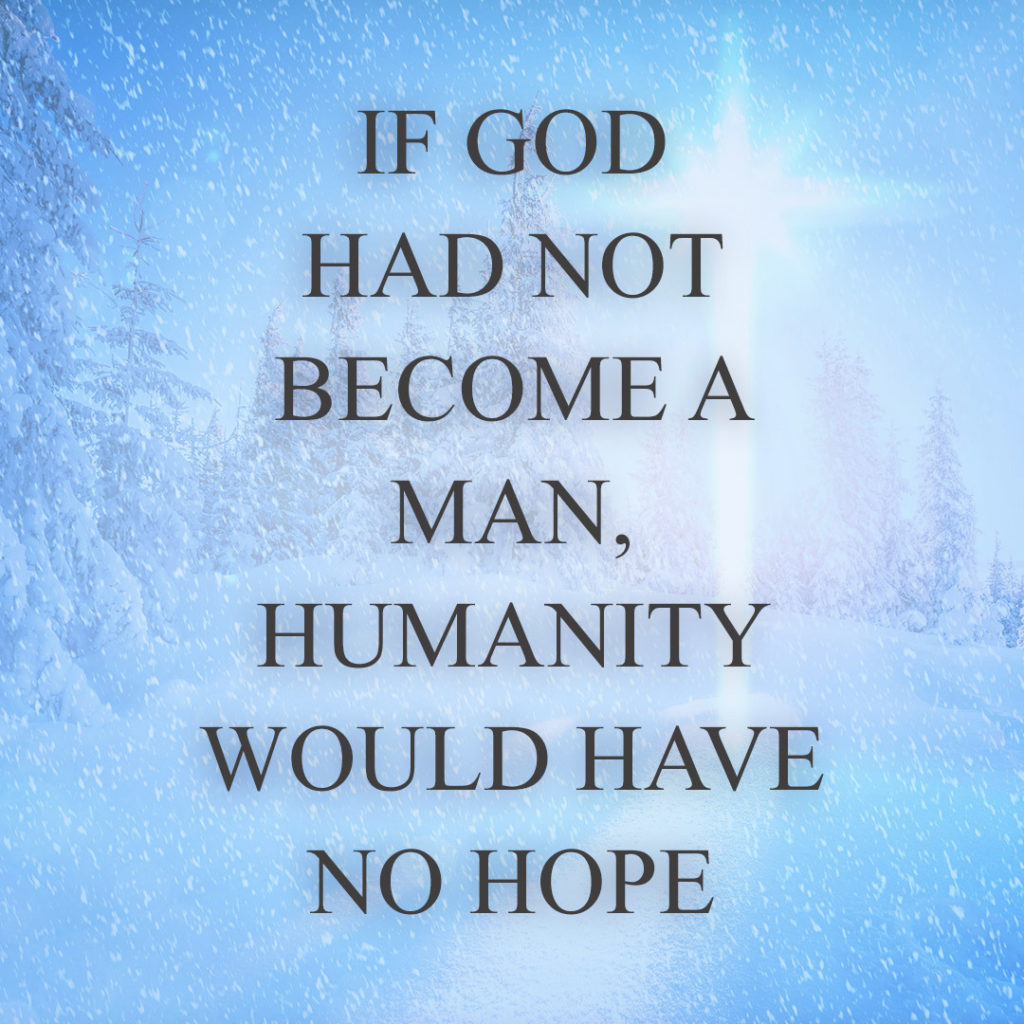The story of Jesus’ birth is awe-inspiring from beginning to end. As we would expect, there are angels, dreams, kings, prophecies, gifts, and the glory of God shining down. But we also find an ordinary peasant girl, a stable, and an unremarkable town. From lowly shepherd to resplendent royalty, the arrival of God’s only Son signaled an invitation for everyone. When God writes the story, nothing is impossible!
Receive Daily Devotions from David Jeremiah
Sign up to receive email devotions each day!
This is the real story of Christmas. All the reenactments and window displays can make the Baby in the manger feel so familiar that we overlook the mystery of it all. And in years when disappointment punctuates the season, it’s easy to forget the hope of Christ’s glorious return. Contemplating the “good tidings and great joy” of Christ’s birth has buoyed the hopes of God’s people for centuries (Luke 2:10), and it will do the same for us today.
5 Christmas Promises From Scripture
1. The Promise of Wonder
2. The Promise of Prophecy
3. The Promise of the Incarnation
4. The Promise of Hope
5. The Promise of Christ’s Return
No matter our circumstances this Christmas, we can build our faith with the promises of Scripture. According to Hebrews 11:1, “Faith is the substance of things hoped for, the evidence of things not seen.” This is not the same as “hoping” for a job interview or a desirable space in a busy parking lot. The author of Hebrews describes a hope rooted in faith and sustained by God’s promises.
As we prepare our hearts and homes for Christmas, let’s reflect on five promises that are ours in Christ Jesus.
The Promise of Wonder
What kind of wonderment would we have experienced if we had been living when the first Christmas took place? Would we be in awe of the virgin birth? Would we admire the angels in the sky? Would we be surprised to find eastern Magi worshiping a baby?
Today we wonder about a different set of concerns. What gifts should we buy? How much should we spend? Can we afford to travel this year, and is it safe? Whatever happened to the way Christmas used to be—sitting by a fire, singing Christmas carols, and exchanging simple gifts?
That last bit of wonder is a valuable one. Spend some time this year reflecting on the wonders of the Christmas story. Raise questions, study the Scriptures, give thanks for what you know, and pray about what you don’t.
- Read Luke 1:26-56; 2:1-20. How does Luke capture a sense of Mary’s wonder?
- Music is a powerful tool for capturing the wonder of Christmas. What are some of your favorite Christmas songs?
The Virgin Birth of Christ
Luke 1:26-38; 2:1-35
The doctrine of the virgin birth of Christ teaches that Jesus was divinely conceived in the virgin Mary’s womb by the Holy Spirit, thus bringing together His two natures: deity and humanity....
There never was a time when Jesus was not, and there never will be a time when He ceases to be. He is the eternal, preexistent Son of God (John 8:58; 17:5). Because this is so, a special, divine arrangement was required for Him to enter into humanity: the miracle of the virgin birth of Christ. God allowed the eternal Son of God to be implanted in the temporal womb of Mary. And she carried the seed of the eternal Son of God for a nine-month term, until He was born into human flesh.
Despite these incredible circumstances, Mary was still human, and she loved Jesus as all good mothers do—willing to anything she could to protect the child she had raised from infancy. And on the hill of Golgotha, as Jesus was about to be crucified, a small group of people gathered at the foot of the hill to watch. In that group was Mary, His mother.
To prevent Jesus’ death, all she had to do in that moment was step forward and say, “No, He is not the Son of God; He is the son of Joseph. Do not kill Him. I remember the night in some secluded place when Joseph and I first came together. This Jesus is not the Son of God!” But Mary stood there and watched her Son die because she knew in her heart that the charge against Him was true: He was the Son of God.
There is no other explanation for His birth. She had heard the announcement from the angel (1:26–38). She had been there on that glorious night when He came into the world, unexplained in human terms. He was the Son of God, and she watched Him die for what she knew was true. No loving mother could ever have done that had she known the truth of the matter.*
As we contemplate all these things, we realize the miracle that occurred in Bethlehem needs to occur in our hearts as well. There must be a nativity in every human heart—the Perfect coming to dwell within the imperfect—for we cannot give birth to Him, or to His goodness, on our own efforts. We need Him to enter our lives miraculously, still and quiet, as He did on that Bethlehem morning.
—from The Jeremiah Study Bible
The Promise of Prophecy
The wistful words “O come, O come, Emmanuel, and ransom captive Israel that mourns in lonely exile here until the Son of God appear” have welcomed the Christmas season for hundreds of years. They remind us of an age, long before Christ’s first coming, when God’s people yearned for the fulfillment of prophetic promises regarding the coming Messiah.
Today we celebrate Christmas as a past event and a present reality. When Jesus Christ stepped into our world, He fulfilled more than three hundred Old Testament prophecies and forever freed us from the bondage of sin. He said, “All things must be fulfilled which were written in the Law of Moses and the Prophets and the Psalms concerning Me” (Luke 24:44). There is no doubt that Jesus is the promised Messiah.

Because we live two thousand years after the fulfillment of these prophecies, it’s easy to overlook the wonder of it all. Just think, Isaiah prophesied the virgin birth more than seven hundred years before it occurred (Isaiah 7:14). Around the same time, Micah predicted the King would be born in an obscure Judean town called Bethlehem Ephrathah (Micah 5:2). And around 600 B.C., Jeremiah predicted Herod’s massacre of infants (Jeremiah 31:15).
- If someone asked you why they should believe Jesus is the Messiah, what would you say?
- We are privileged to live at a point in history when we can look back on the Messiah’s arrival and understand it through the lens of Scripture. Spend some time thanking God that Emmanuel has come.
The Promise of the Incarnation
One of the most misunderstood aspects of Christmas is the nature of the One we celebrate. Jesus was more than a wonderful Teacher. He was God in the flesh of humanity. But why would God become a Man?
In John 14:9, Jesus says, “He who has seen Me has seen the Father.” Jesus’s incarnation revealed God to us. Without it, we would not have a correct understanding of God the Father.
Ephesians 1:7 provides additional meaning: “In Him we have redemption through His blood, the forgiveness of sins, according to the riches of His grace.” Jesus became one of us so that He—the only sinless Man—could represent mankind on the cross and pay the penalty for our sins. If God had not become a Man, humanity would have no hope.

The incarnation allowed Jesus to understand our struggles because He experienced everything we experience—apart from sin. Hebrews 4:15 says, “For we do not have a High Priest who cannot sympathize with our weaknesses.”
- Look up John 1:1; 8:58; 10:25-39. What proof do you find for Jesus’ deity?
- In what ways did Jesus seek you out before you trusted Him for your salvation? How will you demonstrate gratitude to Him for saving you from a hopeless eternity?
The Promise of Hope
Christmas has a profound effect on people. For some, it is a season of joyful reflection on the redemptive work of Jesus Christ. But for those living apart from Christ, it often brings despair. Advertisements for shiny gadgets, holiday movies about reunited couples, and Christmas cards of picture-perfect families reinforce the emptiness of a Christless Christmas and magnify unmet needs.
But all of God’s children are invited to “come boldly to the throne of grace, that we may obtain mercy and find grace to help in time of need” (Hebrews 4:16). No matter what we may have experienced, God has been alongside us. Regardless of our circumstances, we have the promise of His love.
Christmas not only extends hope for the present but also promises hope for eternity. As Jesus hung on the cross, He assured the repentant thief next to Him, “Assuredly, I say to you, today you will be with Me in Paradise” (Luke 23:43). And Hebrews 5:9 says, “Having been perfected, He became the author of eternal salvation to all who obey Him.” Those who live for Christ have the promise of heaven.
- Read Hebrews 7:25–8:13. How do these words give you hope for the future?
- God wants you to share the message of Christmas—of salvation—with someone. Ask Him to show you who needs to hear His Good News, and then invite them to your Christmas celebration.
The Promise of Christ's Return
Most people know the lyrics to Isaac Watts’ famous hymn, “Joy to the World,” but few realize it is not about Christmas. A quick look at some of the lyrics will explain why: “Let earth receive her King.” Did mankind receive the King when Jesus was born in Bethlehem? “Joy to the earth, the Savior reigns!” Has nature rejoiced at the coming of Christ? “No more let sins and sorrows grow.” Has the curse been lifted from the earth?
The words of this great hymn describe a future era when Christ will rule over the earth at His Second Coming. During this thousand-year era known as the Millennium, Christ will bring peace and justice to our world and establish His kingdom in Jerusalem.
Scholars have identified 1,845 biblical references to the Second Coming of Christ—that outnumbers references to the first coming by a factor of eight to one! According to Scripture, only the Father knows when Jesus will return, but there is no doubt that He will return to fulfill every prophecy.
As we take down Christmas decorations and prepare for a new year, let’s hold fast to the hope we have in Jesus. Let’s embrace the joy of knowing that one day the earth will receive her King.
- Read Isaiah 11:1-10 and Revelation 20:1-10. How do these passages describe the Millennial Kingdom that follows Christ’s Second Coming?
- What details of these descriptions indicate that the Millennial Kingdom has not yet begun?
- What do the following Scriptures say about Christ’s reign?
Psalm 72:11 ______________________________________
Isaiah 9:7 _________________________________________
Isaiah 60:21 _______________________________________
Zechariah 9:10 ____________________________________
Luke 1:32-33 ______________________________________
You Might Also Enjoy:
• Why Was Jesus Born in Bethlehem?
• Prophecies Fulfilled by Jesus
• How Do We Know Jesus Is the Son of God?
• Why Did God Choose Mary?
• A Red-Letter Christmas Advent Devotional
• Understand Old and New Testament Prophecy
• 10 Bible Contradictions About Jesus Explained
• Why Do We Celebrate Christmas on December 25?
